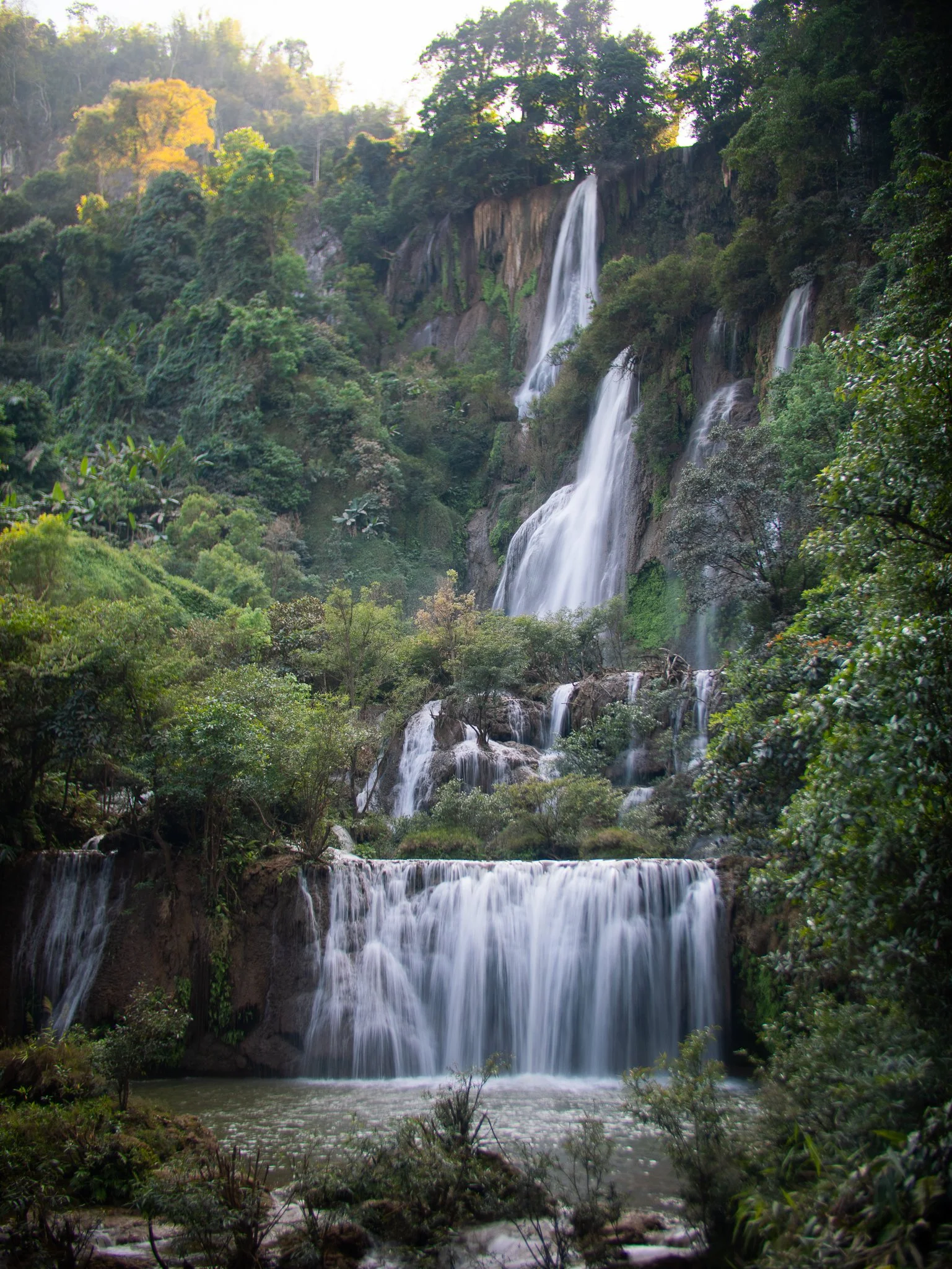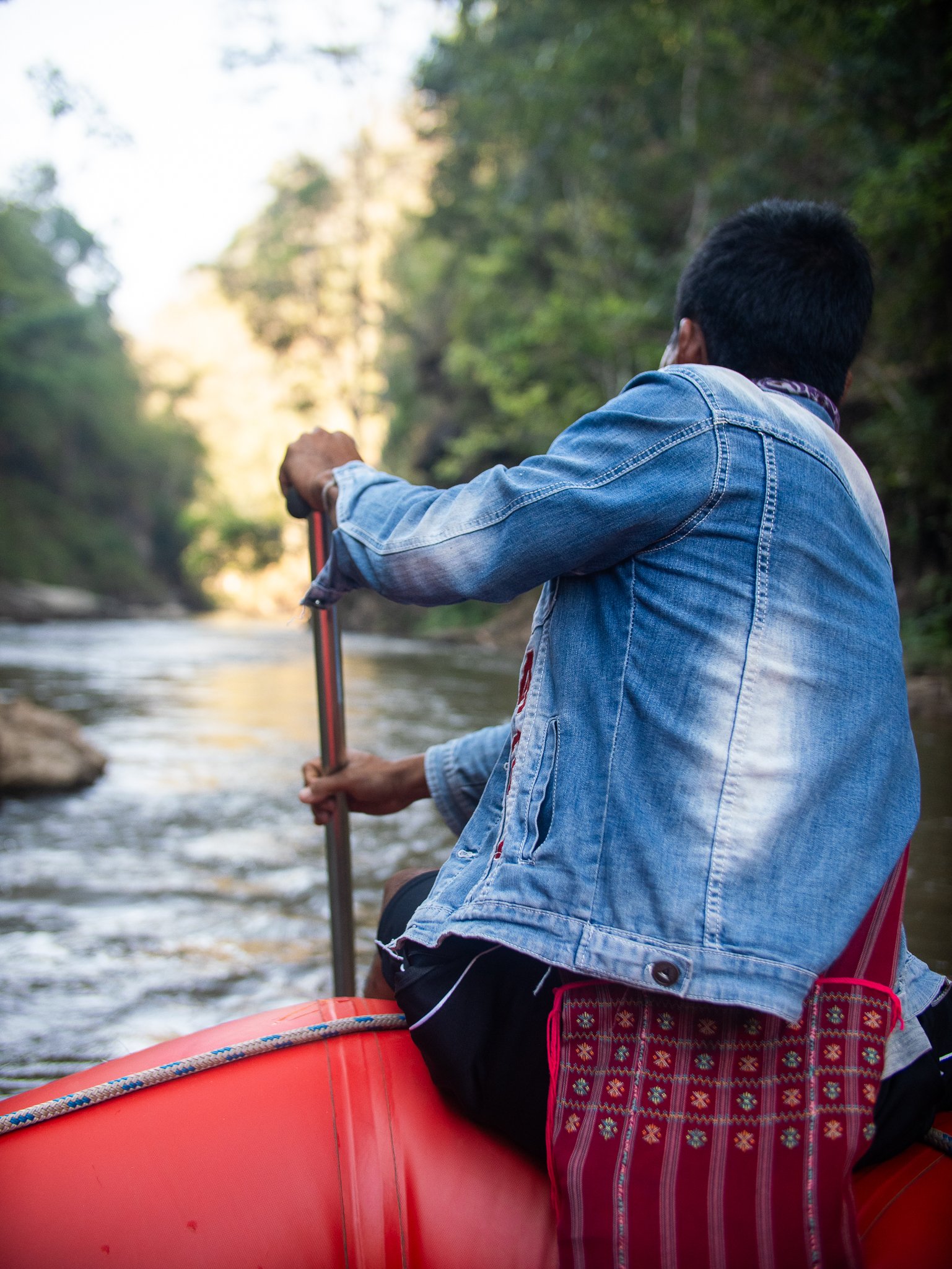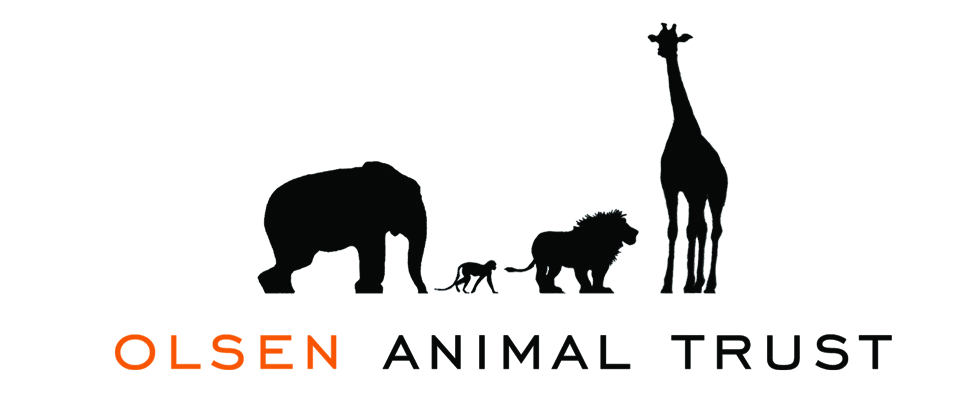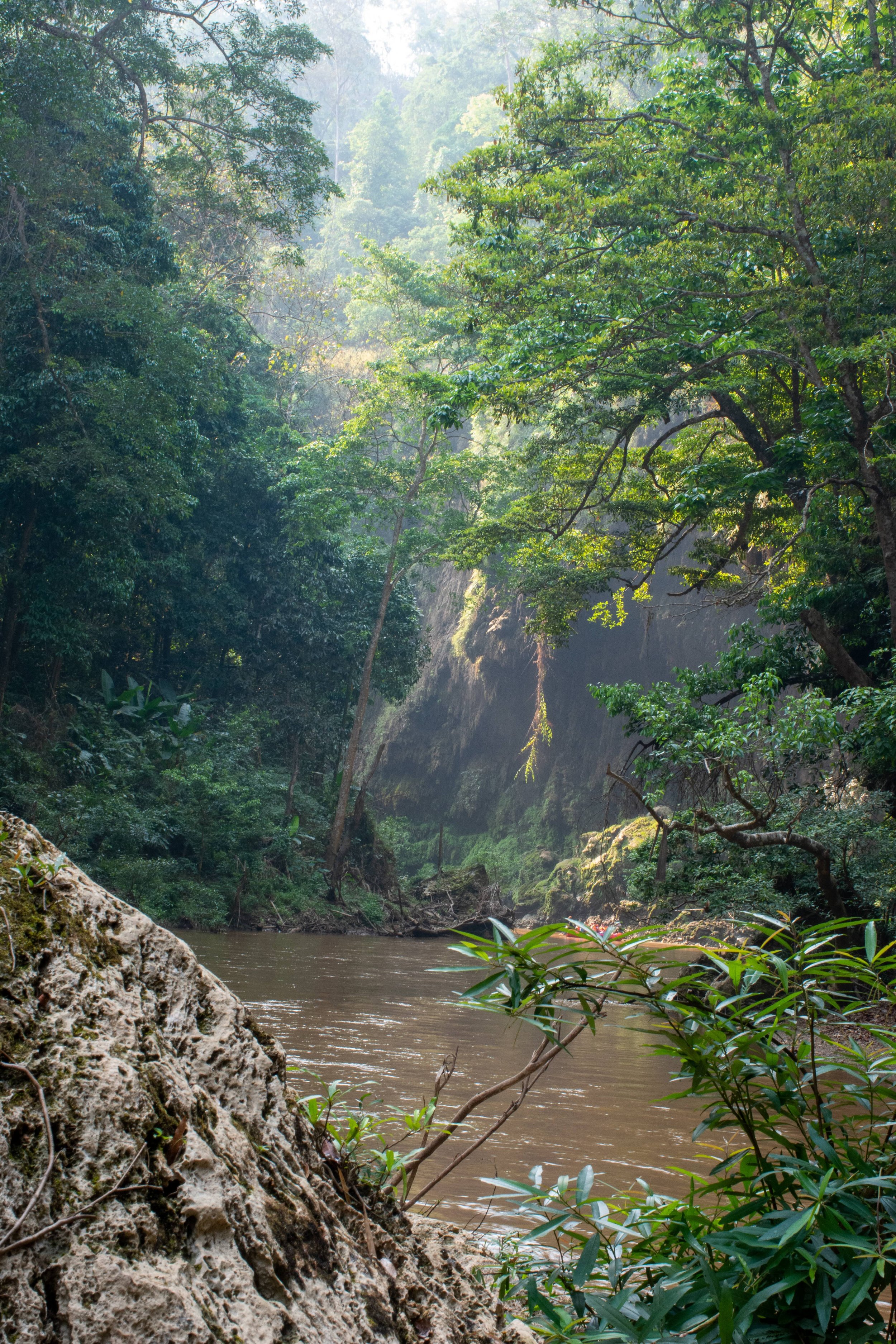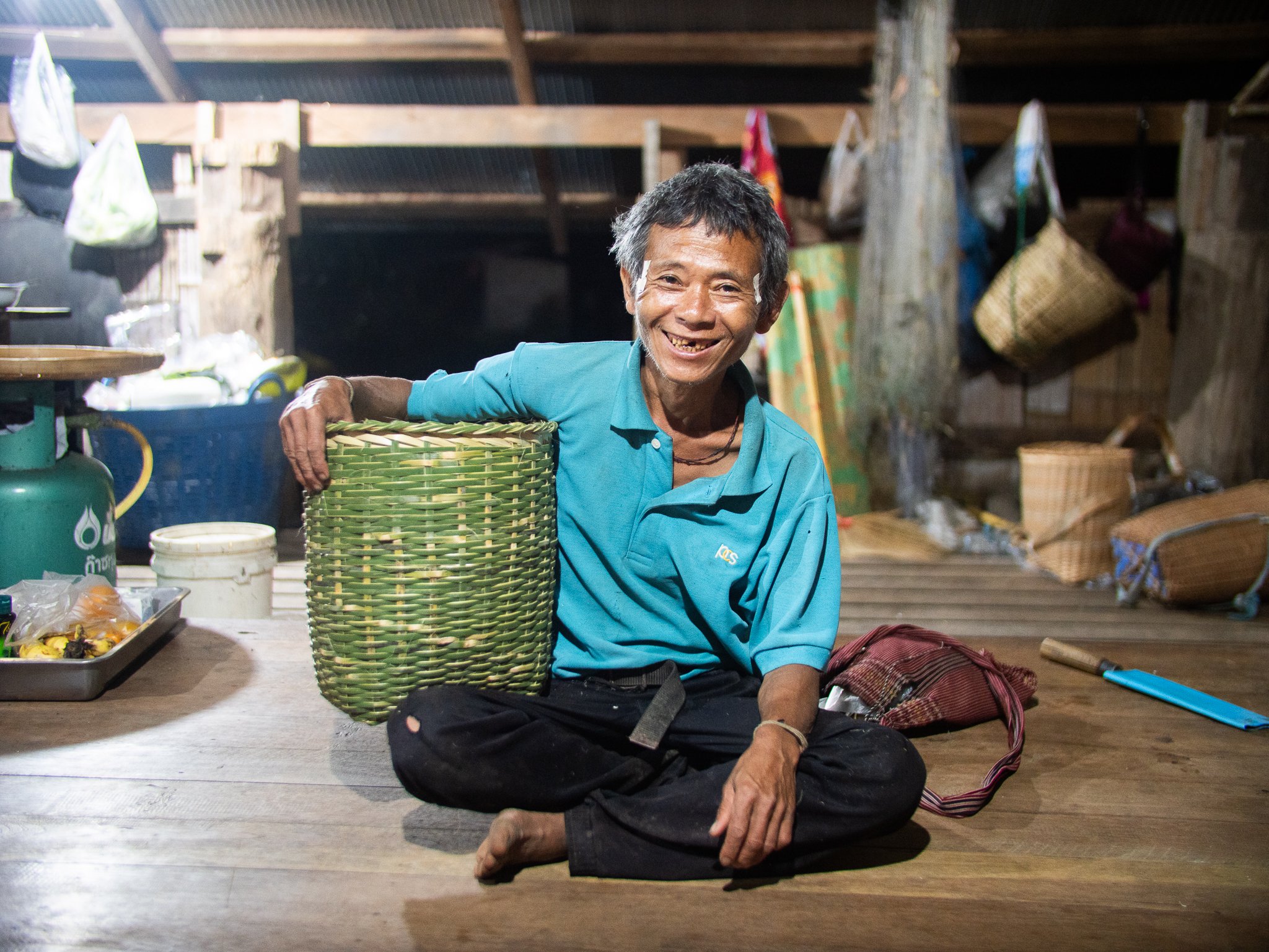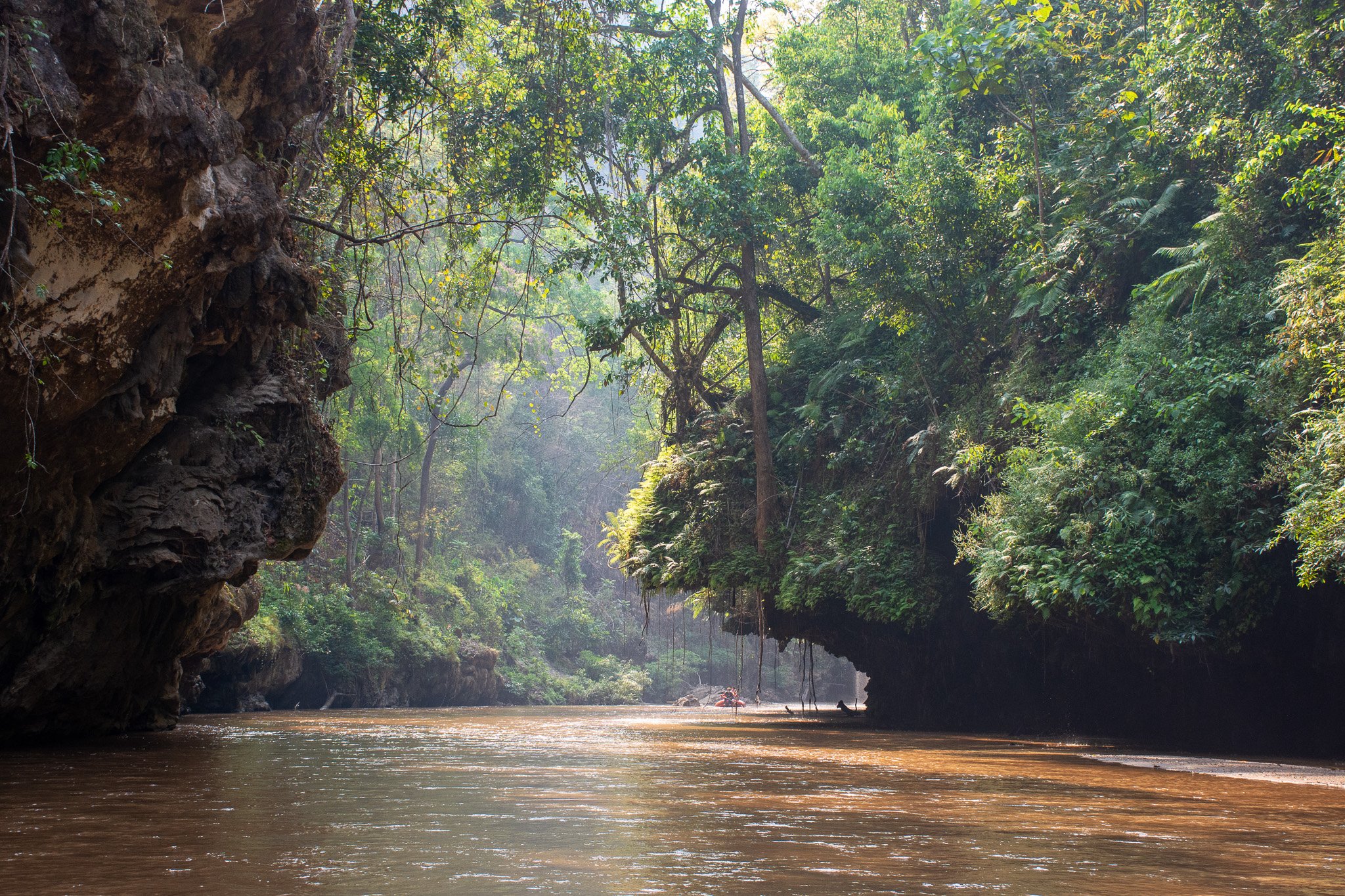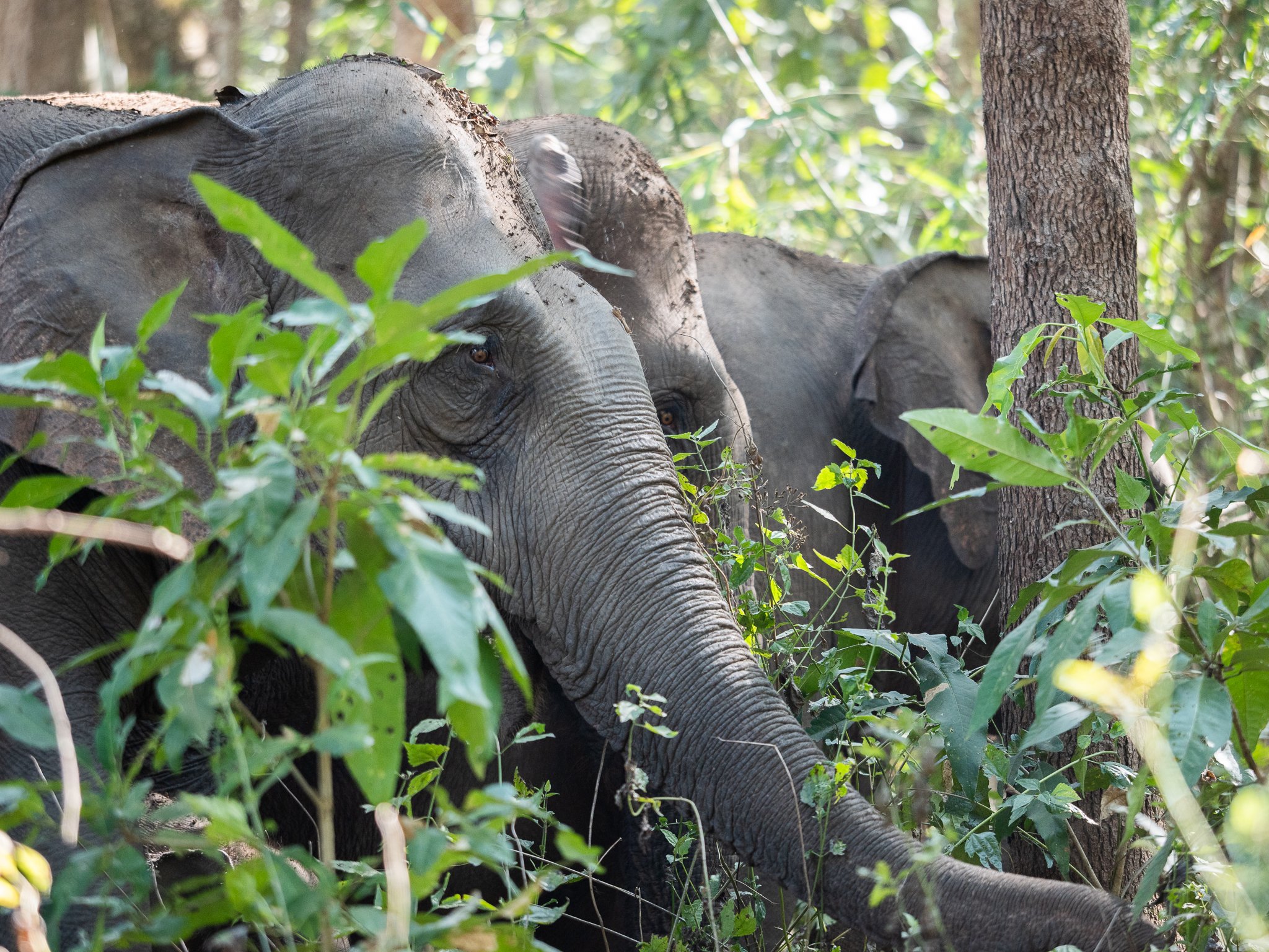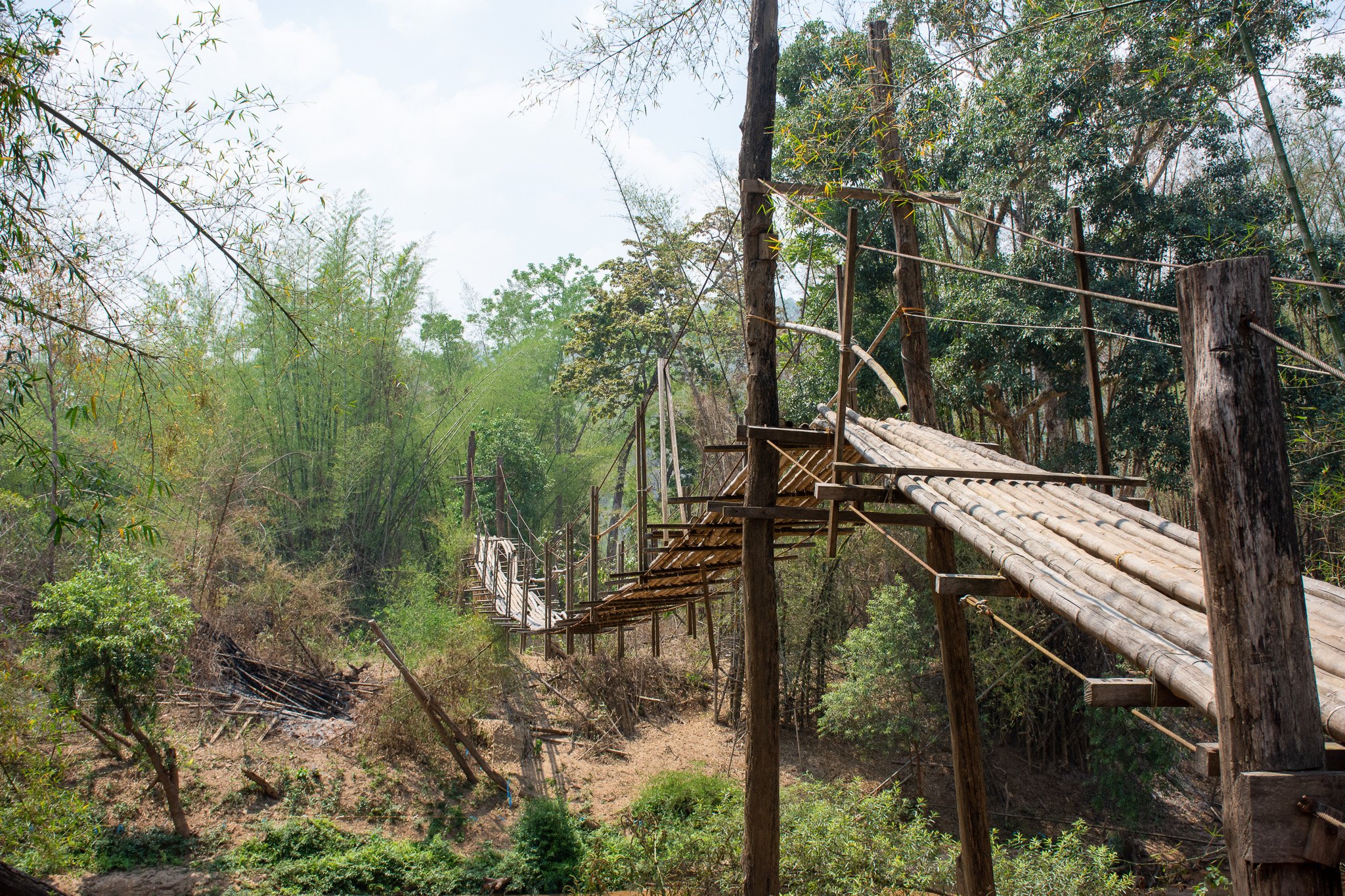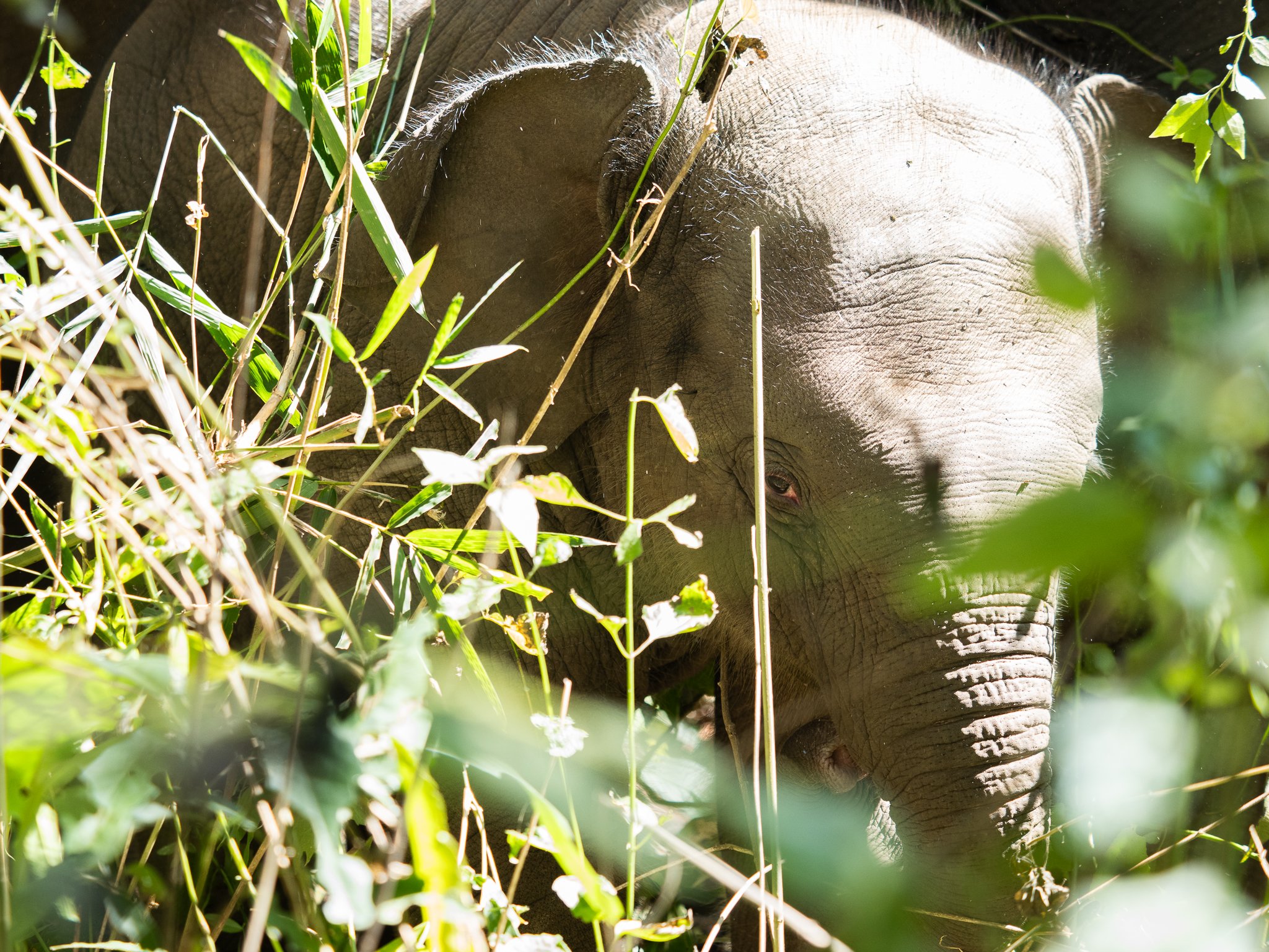A new Future for Elephants in Palatha
Join us in creating a world where elephants and communities thrive together.
In one of the most remote areas of Thailand, situated deep within the Western Forest Complex, lies an indigenous Karen community that is safeguarding the last group of trekking elephants in the region. We have the power to save these last six elephants from being sold into the tourism industry, and permanently retire them in a vast forest home.
As an organization with a proven track record of equitable collaboration with indigenous communities, we now have the unprecedented opportunity to permanently retire and re-wild this last group of working elephants in beautiful forests surrounding Palatha.
Through this remarkable partnership we will be saving 6 elephants from being sold into the elephant tourism industry. This is an unprecedented opportunity to save an entire herd all at once.
Help us Save the Last 6 Elephants of Palatha
We need your help!
After extensive preparations, market assessments, and feasibility studies, we determined that we need to raise £90,000 in seed funds to rescue all 6 elephants and build local capacity.
After an initial seed investment and incredible support from The Olsen Animal Trust, our self-sustaining model will leverage sustainable tourism income to support the livelihoods of elephant caretakers and forest stewards, and supplement the income of the rest of the community through the sharing of benefits from community based tourism.
In addition to poverty alleviation, and permanent elephant preservation, the return of elephants to the forest allows scientists to study how Asian elephants live in their natural habitat. It also builds capacity within communities to preserve the forest for generations to come.
Creating a World Where Elephants and Communities Thrive Together
Poverty, environmental degradation, and the exploitation of elephants are interrelated symptoms of the larger problem - an elephant tourism industry that devalues elephants and relies on mahouts and elephants leaving their forest home to work in tourist hotspots. We work with a unique safari-style model of elephant tourism in direct partnership with indigenous Karen mahouts, empowering them with the tools they require to support their families and their elephants in their home village. Visitors hike with mahouts into the dense forest and see the elephants on the elephants' terms, an experience many describe as awe-inspiring and life changing.
The success of our pilot project demonstrated that ethical community based tourism can be a powerful solution to this complex problem, especially among indigenous communities that maintain their traditional forest-based livelihoods.
How our model works
Our proven theory of change recognizes that the wellbeing of elephants, Forests, and humans are interconnected.
Why these elephants are at risk
The economic changes brought on by Covid-19 put an end to the use of working transportation elephants in Umphang, forcing the dozens of elephant owning families to choose between having no source of income, or to sell their elephants and turn to environmentally destructive mono crop farming. Today, only 6 elephants remain.
As an organization with a proven track record of equitable collaboration with indigenous communities, we now have the unprecedented opportunity to permanently retire and re-wild the last group of working elephants in Umphang.
Our team of community based tourism experts, elephant industry experts, and academics in the social and biological sciences have the skills and track record to successfully plan and carry out this project.
Umphang is one of the most remote areas of Thailand, yet it has a thriving eco-tourism economy offering river rafting and tours of Thailand's largest waterfall. By leveraging the existing ecotourism market, repairing traditional inter-village walking routes, and developing community based eco-tourism in, forest preservation efforts can be made more equitable, and Karen communities can materially benefit from the forest protection work they have been participating in for many years.
We are seeking seed funding and industry partnerships with organizations who share our mission to support evidence-based, culturally integrated and socially just methods to protect elephants, conserve forests, and honor indigenous lifeways and knowledge systems.
In the Heart of the Western Forest Complex
Known as the largest and most important forest tract in Southeast Asia, the Western Forest Complex is teeming with biodiversity.
Our Exciting new Partner: Go Beyond
We are excited to announce our partnership with Go Beyond. Go Beyond is a forward thinking company, passionate about the power of travel to change lives, and dedicated to making the industry more sustainable. Over the course of an entire year, our teams worked together to craft an experience that combines Go Beyond’s expertise as an industry leader with our expertise in elephant wellbeing and the development of sustainable community based tourism. We are proud to offer an experience that meets our commitments to the elephants, the community, and travelers. Go Beyond will be bringing individuals, groups and families to the project where they will have the opportunity to experience ethical, sustainable, community based tourism, and the amazing experience of trekking into the forest to see elephants living in their natural habitat.
Helping communities benefit from their work to protect nature.
Thank you to Explore for supporting our work
Thank you to Olsen ANimal Trust for supporting our work
Honoring local traditions
Community based tourism means that the economic benefits of tourism are shared among the community, rather than to a few individuals.
As an organization with a proven track record of equitable collaboration with indigenous communities, we now have the unprecedented opportunity to permanently retire and re-wild the last group of working elephants in Umphang.


